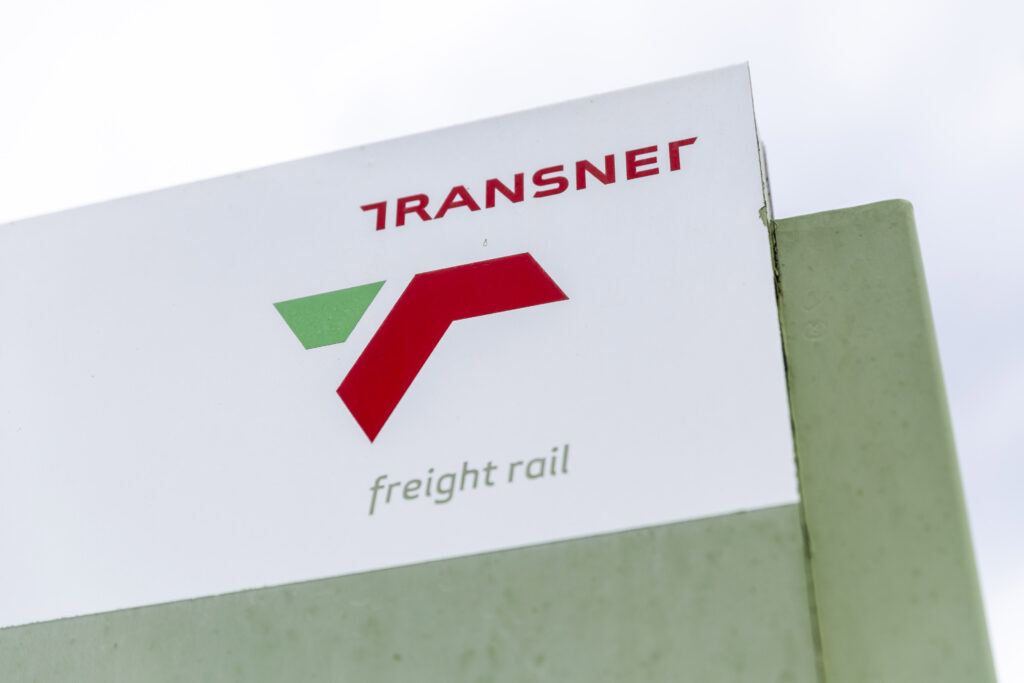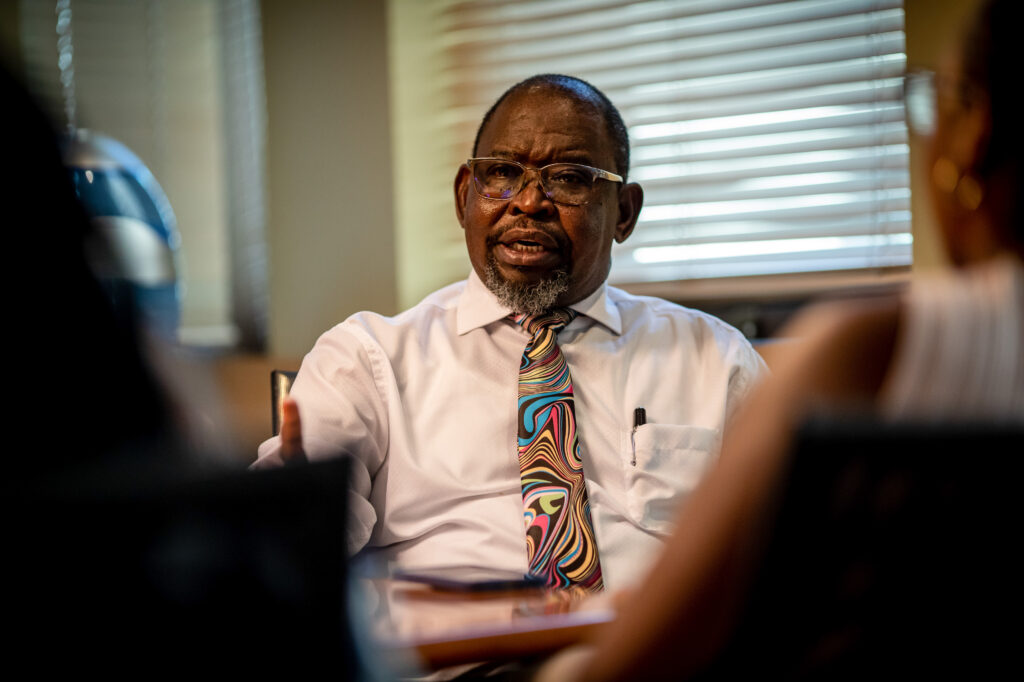You can also listen to this podcast on iono.fm here.
ADVERTISEMENT
CONTINUE READING BELOW
JEREMY MAGGS: The Transport Minister, Barbara Creecy, has dissolved the board of the Road Accident Fund [RAF], citing ongoing governance failures that have crippled the institution’s ability to deliver on its mandate.
With escalating litigation costs, leadership instability and mounting delays in processing claims, the RAF is fast becoming, I’d suggest, a case study in institutional collapse for road accident victims and those advocating on their behalf the stakes couldn’t be higher.
I’m in conversation now with Ngoako Mohlaloga from the Association for the Protection of Road Accident Victims [Aprav]. A very warm welcome to you. So what’s your initial reaction to this decision? Long overdue or a little too late?
NGOAKO MOHLALOGA: Well, Jeremy, if you go back to the minister’s first public view on the RAF after the formation of the GNU [government of national unity], she mentioned that the governance issues at the RAF are a concern to her and to be looked into.
We have long been trying to reach out to the minister to raise some alarming issues with her with regard to the RAF, but we understand that she has to familiarise herself with the situation within the RAF and to make a decision and maybe follow a process.
Read: Creecy dissolves RAF board
So in our view, it’s not surprising that she made this decision. We believe that it’s a well-considered decision and we support her on that one, Jeremy.
JEREMY MAGGS: So let’s talk about those alarming issues and specifically critical governance failures that have led to this move. I guess a combination of leadership, poor leadership, maybe a lack of accountability, but we also know there’s been a deeper systemic rot within the organisation for some time.
NGOAKO MOHLALOGA: Jeremy, the outgoing CEO [Collins Letsoalo], when he took over there was Covid and then subsequently the Parliament building got burned, as a result of which there was no oversight at all. As Aprav, we have been having a very good relationship with Parliament, and that’s always why we’ve been able to force executives to account.
Now, some of the systemic issues within the RAF are that even though they are highly litigious, they did not have the head of legal in place who is properly qualified to be advising the RAF on the various legal issues that they are facing. That’s number one.
If you consider the fact that the RAF is there to pay claims to victims, for two years now, they did not have a chief claims officer.
Now that, according to us, has been engineered to cripple the RAF and we are hopeful that the minister’s intervention is going to look into some of these issues, but specifically capacitate or force the interim board or the advisory panel to make sure that they capacitate the fund to be able to effectively administer claims and ultimately quicken the payment to victims, Jeremy.
JEREMY MAGGS: All of that is absolutely critical, but all contingent, I imagine, on whether Treasury and government have the political will to fully restructure the RAF. Or do you think maybe we’re just heading, going forward, for another round of superficial fixes?
NGOAKO MOHLALOGA: Jeremy, if you mention the Treasury, we are a bit worried. For a number of years now, we’ve been asking the Treasury to be clear about the spending of the fuel levy money, the flow of the fuel levy money from Treasury into the RAF.
It is our view, and I must tread with caution there, that we suspect that all the monies that are collected through the fuel levy are not being spent on the RAF as per the RAF Act.
So we are calling on Treasury to reveal all the spending of the fuel levy money to make sure that the money is being spent for what it is meant for, which is the compensation of the road accident victims.
JEREMY MAGGS: What response have you had, if any, from Treasury in that respect?
NGOAKO MOHLALOGA: Dead silence for a number of years now. We have been appealing to Parliament to assist us. If you submit a Paia [Promotion of Access to Information Act] request, it’s normally rejected and they refuse to disclose the allocation of the fuel levy money.
JEREMY MAGGS: So why don’t you take it to court?
NGOAKO MOHLALOGA: Jeremy, we are very amenable to discussions that will help us to get to a situation where it’s not confrontational. We’ve always been saying, let’s create an atmosphere where we can sit around the table and talk around issues. We’ve not as yet reached a decision where we think it’s the right time that we must go to court.
ADVERTISEMENT:
CONTINUE READING BELOW
JEREMY MAGGS: But given that people’s lives are at stake here, or their livelihoods at least, isn’t it time to become a little more confrontational in that respect?
NGOAKO MOHLALOGA: That may be something that we need to consider. We need to carefully look into that because our approach is that we believe in building relationships with all the stakeholders. We were hoping that we would not have to force government to do what we think is the right thing to be done by government.
JEREMY MAGGS: How bad is the current backlog of unresolved claims?
NGOAKO MOHLALOGA: If you comply with all the requirements of the RAF and the court process to at least get a court date today, the next court date that we’ll get is in 2031. That’s how bad the situation is. So we have a situation where people are dying without having received their payments.
We have a situation where people get their houses, their cars sold simply because they’re waiting for their RAF payments.
To us as Aprav, it’s double jeopardy. Remember, once you are a road crash victim, the RAF then victimises you by not properly adjudicating on your [claim], administering it quicker to make sure that at least you get compensation for your injuries.
JEREMY MAGGS: Which brings me back to my original point. Is it not time for your organisation to up the ante here?
Read: Scopa ‘inquisition’ into the RAF set for September
NGOAKO MOHLALOGA: Jeremy, we are going to give Scopa [Standing Committee on Public Accounts] a chance to delve deeper into the crisis in the RAF. We are hoping that the inquiry that they have launched will help government and the ministry to look into the issues that are a problem within the RAF and whatever recommendations they make.
We are hoping that the ministry and the Department of Transport will implement those. We are going to participate in the Scopa inquiry fully to make sure that the voice of the victims is being catered for. So in our view, we are going to support Scopa and the ministry, hoping that whatever interventions that they are making will help solve some of our problems and challenges.
JEREMY MAGGS: Beyond intervention, as you go into the future, are you also looking at alternative funding or a better claims model to replace the RAF in the long term?
NGOAKO MOHLALOGA: Jeremy, in 2022, we made a submission to the Portfolio Committee on Transport on what we believe are solutions to the problems that are facing the RAF. By the way, in our midst, as Aprav, we have got academics, we’ve got doctors who are specialists who have worked in the RAF field. We’ve got actuaries who understand the RAF fully.
So we have got a team of experts, some of which have been assisting the RAF before, who have come to us with what we believe are long-term solutions to the RAF. Again, we are appealing to government to listen to us because we have shared our views. We have shared our solutions with Parliament and the ministry. We are just hoping that at some point they will look objectively to what we are suggesting and then take it from there.
But to try and answer your question directly, we believe that if the RAF were to implement the RAF Act as it is, and not try to put layers of compliance issues to try to discourage people from claiming, if they can just implement the Act as it is, the RAF is actually very effective.
They must just employ more claims officers within the RAF who are properly qualified and knowledgeable.
We believe that there are such people who will gladly accept that responsibility and work for the fund.
JEREMY MAGGS: That’s where we are going to leave it. Ngoako Mohlaloga from the Association for the Protection of Road Accident Victims, thank you very much.
Follow Moneyweb’s in-depth finance and business news on WhatsApp here.

 6 hours ago
1
6 hours ago
1






















 English (US) ·
English (US) ·